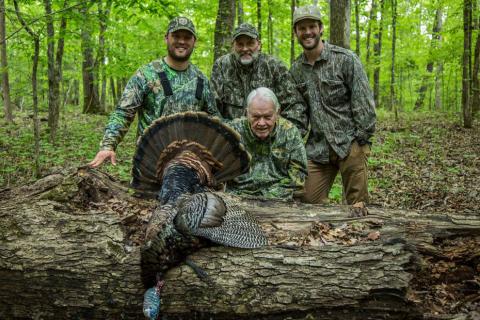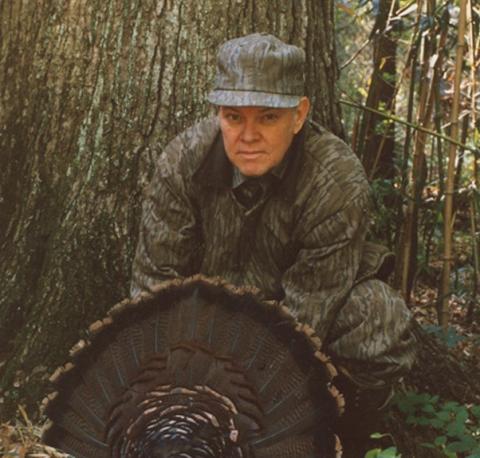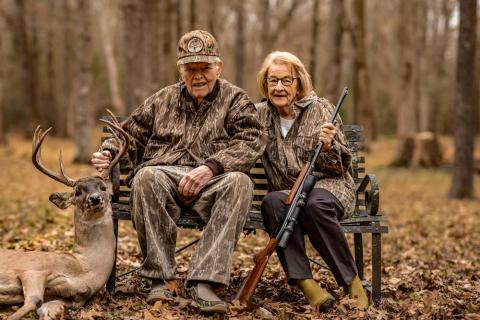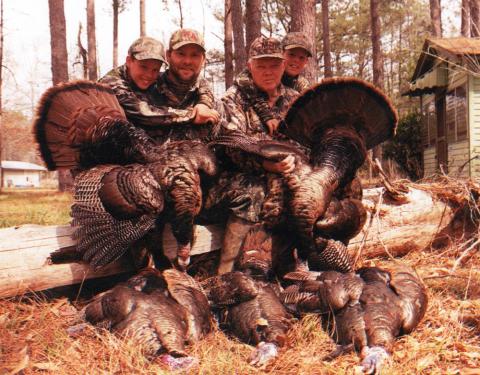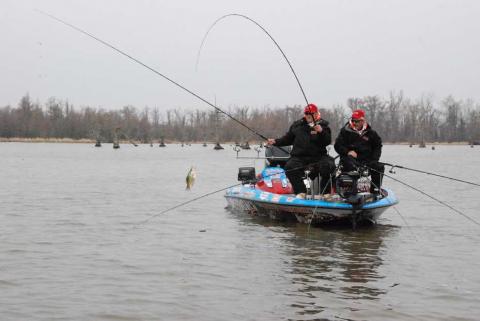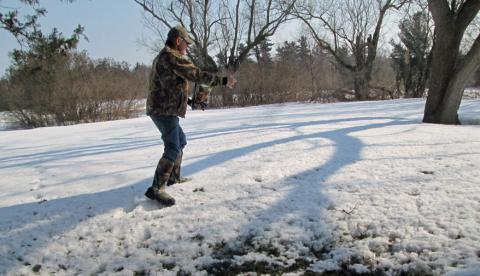
Experienced police handlers will tell you they perform field work exercises with their K-9s several times a week, often on their off-hours.
There is an excellent reason for this. Dogs, like people, need practice and stimulation to keep their muscle memory quick and their mental acuity sharp. Constant preparation allows for K-9s to be ready to chase down a suspect or search for narcotics at any time of day or night, whenever their department needs them.
To stay sharp and in shape for the next hunting season, hunting dogs also need continued training during the off-season. It ensures your dog remains gun-proofed and accustomed to the tools of hunting, ready to do their job and responsive to your commands.
Your hunting dog needs to stay challenged, both mentally and physically, and there are many things you can do to keep him focused and strong.
Command training
When hunting, the most important thing a dog needs to be able to respond to is the sound of your voice or a whistle. You are the leader of the pack, but you are also responsible for making sure your dog remains safe.
Practice the basic commands and your whistle commands a few days a week, including watch, here, stay, sit and heel. Doing this often can help them to recall the commands more quickly once hunting season arrives.
It also serves as a reminder to your dog that you are in charge of the hunting team. Your dog is a working dog. He or she will fully enjoy exercising their knowledge of the commands and the positive reinforcement and treats you give them.
Run, run, run
One of the best physical exercises you can use to keep your hunting dog in shape during the off-season is running.
Take your pup for daily runs. Make sure you find some hilly areas and wooded trails to change the scenery and put some exertion on different areas of your dog's muscles while strengthening his paw pads for tough terrain.
You can also get your hunting dog to run by throwing or launching a dummy or bumper into the woods for him to retrieve. This will keep him fit and also test his eyesight and scent acuities. Be sure to do this while incorporating training commands.
If it's too hot to run, take your dog for a swim or a light, one- to two-mile walk in the morning or evening when it's not as hot. Swimming lets dogs utilize those same important running muscles and walking keeps their paw pads tough and their muscles flexible.
Make sure to throw some training dummies or bumpers into the water to keep your hunting dog's senses sharp for water retrieval, too.
Strength training

Add a weighted backpack to your routine or have your dog pull a small, weighted wagon to up their endurance on your walks and runs. Endurance training is key to a long and successful hunting season for both you and your dog.
But remember, your hunting dog will need less time exercising if you add weight, so keep an eye on him, especially in hot weather.
Fire your guns
During the off-season, it's essential to keep your dog used to the crack of a rifle. Many hunters think that once a dog is gun-proofed, they always will be. But that is not always the case and younger pups, in particular, may become gun shy after a long break between hunting seasons.
Bring your dog along to a firing range that is dog-friendly or target practice on your property with your pup in tow. If it has been some time since your hunting dog has heard the sound of a gun, consider starting off with a cap gun or a smaller-caliber firearm.
Helping your dog get used to the startling crack of a rifle again will keep him from darting off at the sound once hunting season arrives.
Obstacle courses and scent searches
Set up an obstacle course in your yard that challenges your hunting dog's agility and flexibility.
A good hunting dog should be able to squeeze through tight spaces and run through most terrains, and keeping their agility up is a top priority during the off-season. By keeping all your hunting dog’s important muscle groups working, you can help prevent him from getting injured during hunting season.
Dogs are curious creatures. They love to solve puzzles with their noses, which is why it’s easy to find lots of products on the market that challenge your dog to locate a treat with their nose through various moving parts, nooks and crannies. These toys are a great solution if inclement weather has you stuck indoors.
However, if you can get outside, hide treats, bird carcasses and other game scents in a wooded area and take your dog out to find them. This can help them maintain scent-acuity, and the added stimuli of the outdoors can keep them used to ignoring distractions while working.
Socialization and public spaces
Keeping your hunting dog socialized to other dogs and people is another important part of training during the off-season.
The social skills dogs utilize when they are around new dogs and people are vital during the hunt. You don't want your dog becoming aggressive towards other dogs in the field or other people he or she may encounter.
Take your dog to dog parks, into the city or around town or just driving around with you in your vehicle. Introduce them to as many people, dogs and other distractions as you can and utilize your command and whistle work with them in public spaces.
Vet visits and equipment checks

Finally, make sure you take your dog for regular check-ups by their veterinarian during the off-season.
Your vet will check to make sure your hunting dog is up-to-date on all of his vaccinations and flea and tick preventatives and that his muscles, eyesight and hearing are all clear. Hunting is not easy on your dog's body, so make sure they are ready to work before you take them out on the season's first hunt.
While you're taking care of your dog's medical needs, check their equipment, too. The off-season is the perfect time to replace broken or frayed collars, leads, harnesses, dog beds, water dishes, backpacks, boots, lines and other crucial hunting gear.
As a hunter, you know that nothing ruins a day faster than a broken piece of equipment, and the same goes for your dog. Ensure your dog's safety and the most successful hunting experiences by making sure their equipment is ready to roll.
Keeping your dog in shape throughout the year allows you to enjoy not only successful hunting this season, but also maintain your dog's health so the two of you can look forward to many seasons to come.



















